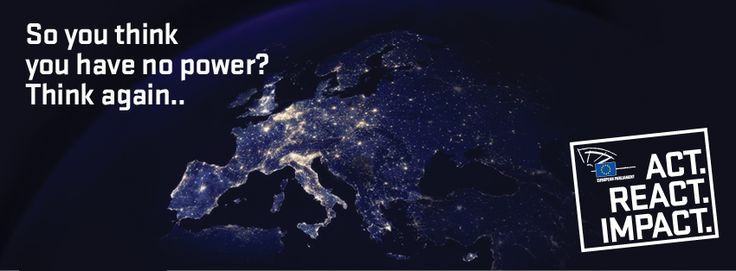[Brussels, 16 Mayl 2014] European elections are just around the corner. Indeed, from 22 to 25 May 2014, nearly 500 million citizens from 28 EU Member States will go to the polls to elect the new Members of the European Parliament (MEP’s) to represent their interests for the next five years. The results will be announced on the evening of Sunday 25 May. This time 751 MEPs will be elected. MEPs’ seats are allocated among the various states, by the EU treaties, on the basis of ‘degressive proportionality’, which means countries with larger populations have more seats than smaller ones, but the latter have more seats than strict proportionality would imply. Find here the lists of all European political parties and current MEPs .
Why are these elections different? In 2009 Lisbon Treaty introduced a new major development: EU citizens will –for the first time– have a clear say about next President of the European Commission’s nomination, as the European election results will have to be taken into account.
Are you feeling lost about who to vote for? Or are you looking for more background information on how the European elections work? The European Women’s Lobby recommends you some interesting websites:
The European Parliament’s European Elections website is available in all 24 EU languages and provides you with much information about the EU Parliament itself, Member States and European political parties. In addition, there is a multimedia press kit is aimed at journalists wishing to cover the European elections. This website was created as part of EU Parliament’s campaign for European elections: Act. React. Impact.
Debating Europe Vote 2014 is an online platform which aims to connect European citizens and politicians together in an online debate. You can find answers to your questions, such as “why should I vote?”, “who should I vote for?”, “where do I get more info?”, but also information about different topics and debates.
Electio2014 is a web platform in 24 languages aimed to orientate and help EU voters decide who to vote for in the European elections. Moreover, the website contains the position of EU-wide and national politicians and civil society organizations on several different issues.
VoteWatch Europe is a website which provides easy access to, and analysis of, the votes, data and other activities of the European Parliament (EP). You can also discover information about MEP’s parliamentary activities (speeches, written declarations, reports amended and drafted, etc.). This website is really useful to see MEP’s achievements and political involvement. Along the same lines, MEP Ranking is an online tool which ranks MEP’s by State, political party and Committee and gives users the opportunity to compare MEP’s and take a closer look on their own activities.
EUvox 2014 is a multilingual online Voting Advice Application (VAA) whose aim is to inform voters and boost their participation in the upcoming EU Parliamentary elections. It helps citizens to select the political party that best matches their own policy preferences and enable them to have quick access to information about the positions of all parties in these crucial elections.
Are you more interested in facts and numbers? Go on FactCheckEU and listen to some politicians’ quotes and comments. Do not hesitate to have a look on the numbers section which provides plenty of charts about European issues.
Do you want more entertaining explanations? Then visit L’Europe c’est pas sorcier ! This French website includes many videos, maps, games and leaflets about the upcoming elections. It is worth seeing for children as much as for adults.
If you are still hesitating, this website, created just for the 2014 European elections, might help you make up your mind. It gathers all websites dedicated to EU elections and includes most civil society organizations’ manifestos.





